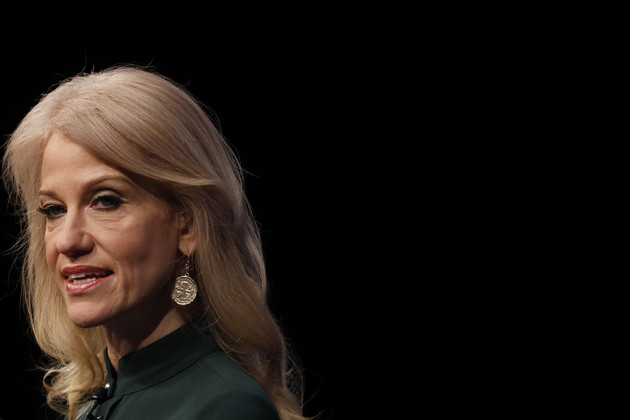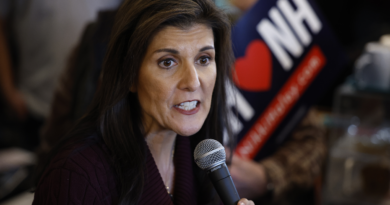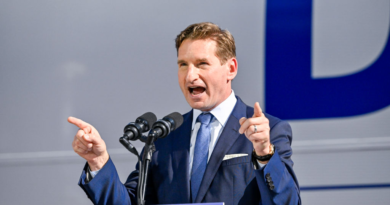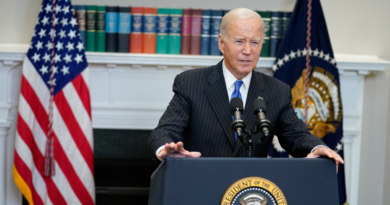Leonard Leo used Federalist Society contact to obtain $1.6B donation
Interviews with people familiar with the internal workings of the Federalist Society, including two board members, paint a picture of a symbiotic relationship in which Leo uses his connection to the vast network of scholars in the society to earn credibility with donors, who then contribute to dark money operations that engage in the kind of partisanship the society officially eschews.
Leo’s political activism and his use of donor money to enhance his own wealth have prompted increasing tensions between him and his fellow co-chair, Northwestern University Law Professor Steven Calabresi, and Meyer, who has been executive director or president for more than 30 years, according to three people familiar with the society. But they said Leo’s ties to the conservative donor base fans fears that a rift would leave the society struggling for funds, while members also worry that any breach in the facade of the conservative legal movement would only empower the liberals that all sides disdain.
Leo’s business empire and his leadership position at the society “easily gets blurred,” creating “a public relations problem,” said professor Lloyd Hitoshi Mayer, an expert on nonprofit organization advocacy at the University of Notre Dame.
The society must decide whether Leo’s “personal activities” have become detrimental enough to its image that he should leave, he said.
“That can happen in a smooth way,” with Leo agreeing to leave, “or it can happen in an ugly way, with that person threatening to take donors with them or maligning them publicly,” said Mayer, who is listed as a contributor on the society’s web page, meaning that he participated in events.
The society remains highly dependent on Leo’s network. It received $5.6 million in grants in 2020 and $3.5 million in 2021 from The 85 Fund, a rebranded dark money group that Leo has said he plans to use to fund conservative causes nationwide, according to federal disclosures. This makes the Federalist Society the second biggest beneficiary of Leo’s primary dark money vehicle, aside from Donors Trust, another conservative nonprofit.
Calabresi and Meyer did not respond to requests for comment. In a sign of the close professional relationship between the Federalist Society and Leo’s for-profit businesses, a spokesperson at Leo’s new for-profit company, CRC Advisors, sent POLITICO a statement on behalf of Meyer. “Leonard Leo did an outstanding job at the Federalist Society for 20 years and we are enormously grateful for his faithful service,” Meyer said in the emailed statement.
Seven other board members contacted by POLITICO either declined to comment or did not respond to requests for comment on Leo’s activities.
One board member, granted anonymity to freely discuss a sensitive topic, defended Leo’s dual roles as activist and society leader. The board member said others in the organization have similar dual loyalties, pointing to David McIntosh, another Federalist Society co-founder and current board member who is also president of the Club for Growth, which spends heavily on House and Senate campaigns through its affiliated political action committees. The Club also paid for ads related to Trump’s Supreme Court picks.
But critics, including some within the society, note that Leo’s dual arrangement provides a potential end-run around prohibitions on political activity by nonprofit educational organizations, with the prestigious debating society attracting the donors and Leo collecting the funds through politically active independent groups.
“The great majority [of Federalist Society members] is in this debating society mode, and then you have this one person [Leo] who is kind of influential in a different mode,” said one longtime member, who was granted anonymity to speak freely about a sensitive topic.
Leo appears to be planning to use Seid’s money to create a new ecosystem of conservative activism that he’s likening to a Federalist Society for cultural institutions from schools to boardrooms. That he and a small circle of his friends appear to be getting wealthy in the process is all the more in contrast with many of the society’s largely academic members who’ve spent 40 years building the group’s pedigree as the nation’s premier debating society, which is above the political fray.
Seid did not respond to a request for comment.
Leo’s dual roles have served to attract one key backer — Trump. As a presidential candidate in 2016, Trump promised that his nominees would “all [be] picked by the Federalist Society.” Yet, according to a person with direct knowledge of the situation, the list of Supreme Court nominees that Trump drew from in creating a conservative supermajority was devised by Leo alone. Neither the organization’s top brass nor its board directors had any official role in crafting it.
It is another example of how Leo’s association with the society helped Leo build his brand with donors and politicians.
“There’s always been a tension” between the society’s scholarcentric majority and Leo’s money-making juggernaut, said the person. Now, the society member says, Leo’s role in creating the court’s supermajority has created unwanted challenges for the society. This includes trouble lining up Democrats or more moderate speakers to participate in its events due to harsh feelings over Leo, said the member.
“The Society has a strong reputation for hosting speakers on all sides of the ideological spectrum,” it boasts on its website.
Steven Teles, a Johns Hopkins University political science professor who authored a book on the rise of the conservative legal movement, including the Federalist Society, concurred.
“It is possible that tension that was always there may have become more impossible to manage, but it was always there,” he said.
In 2020, that tension seemed to break the surface when Leo left the society’s payroll as deputy director, in a move that seemed designed to separate him from the society’s day-to-day dealings. But at the same time he has continued to reign as co-chair along with Calabresi, who is widely considered an intellectual leader in conservative legal circles.
The rise of Leo’s dark money groups has coincided with an increase in his personal wealth and an expansion of his lavish lifestyle, beginning in 2016, when Trump came into office, as POLITICO reported previously.
During this period, Leo’s network also facilitated millions of dollars in combined payments to at least two co-workers at the Federalist Society, both of whom have since joined him at his private company, CRC Advisors. An entity listing Maria Marshall, previously director of operations at the society, as its sole officer received $775,000 over three years from the Leo-connected Rule of Law Trust, while Jonathan Bunch, now president at CRC Advisors, received $1.54 million from the same nonprofit, which lists Leo as its principal officer, according to federal disclosure forms.
Bunch and Marshall did not respond to requests for comment, and CRC “won’t be providing additional comment” on the matter, said spokesperson Adam Kennedy.
Leo also appears to have used his network to pay between $1 million and $5 million to Trump adviser Kellyanne Conway for the sale of her business while she was advocating for Leo’s list of preferred court nominees, which raised concerns among ethics experts and led to at least one complaint from a liberal watchdog group that called on Congress to investigate.
The dark money group Leo used to facilitate the transaction, BH Fund, was dissolved days after POLITICO inquired about its role in facilitating the sale of Conway’s polling company.
A second for-profit entity tied to Leo was also dissolved around the same time. The Barton Group — registered to the same address as Leo’s BH Fund — took in $2.59 million from the same nonprofit, the Rule of Law Trust, which lists Leo as its principal officer. Virginia State Corporation Commission filings show that, along with BH Fund, the Barton Group was also dissolved days after POLITICO’s story ran in December.
The Federalist Society, an organization of 60,000 lawyers, law students and scholars, has made clear that it does not lobby, take policy positions, or sponsor or endorse political candidates.
But the philosophical distance between its top leaders couldn’t be more evident.
Calabresi, who has remained an academic and an unpaid Federalist Society leader, has been vocal about the politicization of the high court and, in 2020, publicly argued for 18-year justice terms.
On Oct. 24, 2022, Calabresi co-authored an amicus brief in Moore v. Harper arguing against the idea that state legislatures could act without any check in regulating federal elections. Traditionally conservative organizations such as the Rutherford Institute and the Niskanen Center co-authored a similar amicus brief alongside the ACLU.
These briefs are in opposition to several filed in support of the petitioner and linked to Leo and the funders of the Federalist Society, including the Honest Elections Project, the Claremont Institute’s Center for Jurisprudence, Citizens United and the American Legislative Exchange Council.
More broadly, Leo became a fixture advising Trump on judicial appointments that coincided with a loss in confidence in the court.
Meanwhile, Calabresi called for the impeachment of Trump — twice. In a July 2020 op-ed, he called “unconstitutional” Trump’s suggestion the Nov. 2020 election be delayed. Calabresi again called for Trump’s impeachment on Jan. 12, 2021, following the Jan. 6 U.S. Capitol riot.




